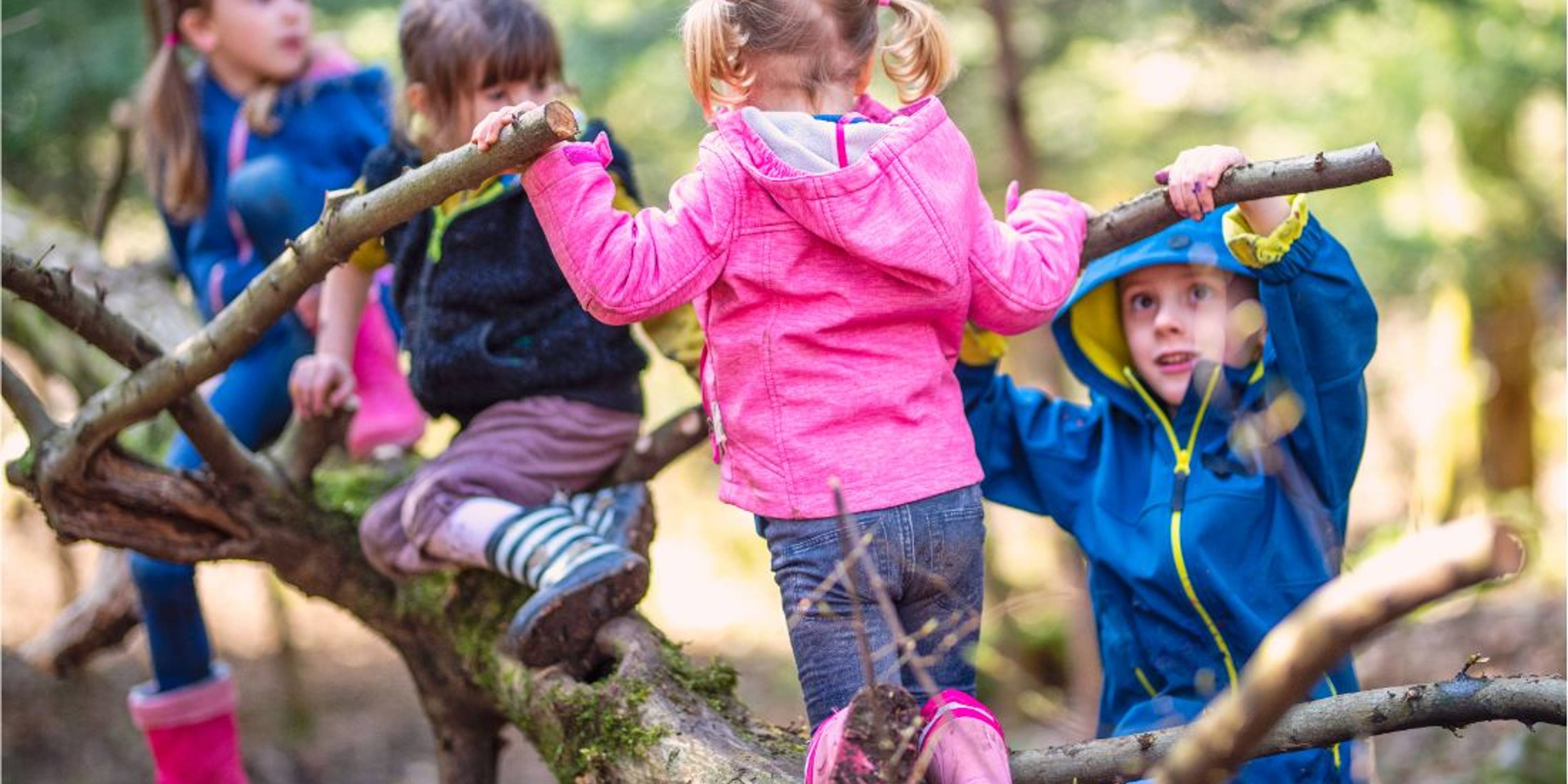August 04, 2023
Having a sibling with an eating disorder

Caring for an individual with an eating disorder can feel isolating and extremely distressing. Research in this area has found that family members often experience high levels of distress and burden due to the pervasive impact of the illness. Studies suggest that when a sibling becomes unwell, it greatly affects the lives of the other siblings and they experience major life changes. However, most existing studies have focused on parents as carers, overlooking the adverse effects that eating disorders also have on the lives of siblings. Our researcher of the month, PhD student Anya Heneghan, aims to shift the paradigm by reviewing the literature in this area. By analysing the findings of 14 eligible studies, Anya’s work explores siblings’ experiences of having a brother or sister with an eating disorder. Her paper is being readied for publication.
She found that eating disorders impact on many areas of siblings’ lives causing immense and inescapable disruption. The amount of parental time and attention devoted to caring for the child with the eating disorder can also lead to siblings feeling less important. Whilst National Institute for Health and Care Excellence (NICE) guidelines for the treatment of eating disorders clarify that family members who take on the role of caregiving, including siblings, need support and education, Anya found that siblings report receiving less professional help than they want or need.
Summary
“The review found that the eating disorder impacts many areas of siblings’ lives, how they view themselves and the world around them, causing immense disruption, intruding on daily living and schoolwork. Significantly higher levels of depression were found in siblings with a sibling with an eating disorder compared to a control group and siblings’ quality of life is negatively impacted.”
Anya’s paper lucidly outlines the great distress that eating disorders cause to the entire family unit. She identifies five core themes of impact; socio-cognitive emotional effects, difficulty expressing emotion, perceived social stigma, negative emotions and a lack of appropriate and systemic support. In recent weeks, she has looked at brand new research, and has identified a sixth theme; reflections on positive by-products of their experiences.
Anya found that siblings often used language of destruction when describing the eating disorder, including words such as ‘destroy’, ‘broken’, ‘devastation’, ‘chaos’ and ‘war zone’. They report that their home environment changes for the worse and that communication with family members becomes more challenging. Some siblings described difficulties with talking to their parents about how they are feeling, despite wanting to, due to concerns about further burdening them. Several studies indicated that siblings minimise their feelings to alleviate their parents’ worry and therefore don’t voice their own needs. Communication between siblings also frequently becomes more limited and restricted, with caution around certain topics including diet-related talk and language relating to body shape and size. Some reported feeling a sense of competition and jealousy over their sibling’s weight loss, which led, in some cases, to siblings also experiencing disordered eating behaviours. Siblings frequently described how they are expected to be mature, independent and cope alone, more than is normally expected at their age – something that Anya terms ‘parentification’.
Anya found that the effect of the eating disorder on siblings is often forgotten about. Four studies revealed that parents’ time and attention are dedicated wholly to the sibling with the eating disorder, leaving their other children feeling neglected and overshadowed. Siblings often describe how family chat about their homework, social life or important life events is minimised and that they believe that the needs of their ill sibling are more important than their own. Siblings were also aware of the stigma surrounding eating disorders and they frequently feared negative judgement from others.
She found that whilst siblings liked receiving support, they did not feel that any of the help offered to them was beneficial. They often said that they were not included in family therapy and had to rely on their parents for information, who were often reluctant to discuss things openly. Anya’s paper is pervaded with a sense of loss. Her review shows that these siblings feel that they have lost contact and closeness with their brother or sister, lost their normality and sense of identity, lost happiness within family life, lost their role as a child and lost their parents’ attention.
Implications
“It is hoped that this review will highlight to professionals the possible risks experienced by siblings, allowing them to provide appropriate support from the outset. Such support can come from the development of new interventions… that integrate siblings in the process of recovery and upskill parents and carers when there is another sibling in the home."
Families supporting a child with an eating disorder are going through an extremely challenging experience. For parents, being there for both their child with an eating disorder and any siblings is undoubtedly difficult. However, Anya has some great tips that might help.
Talk to your children. All of your children need to understand what is going on. Siblings require factual information, given in a developmentally appropriate way. Include them and be honest.
Try to remove burden from them. Remind your child that their sibling is receiving support from a team of professionals and that it is not their responsibility to make them better.
Explain that the whole family will experience changes together. Reassure them that their role is that of a sibling and not of a parent. They should continue to spend time with their sibling doing fun activities that they both enjoy.
Whilst finding time is likely to be challenging, try to spend some one to one time with your other children. This will help to prevent them from feeling less important.
Encourage them to talk about their feelings and seek help when they need it. Help them to identify key people in their lives who they feel comfortable talking to, in case they don’t feel able to confide in you directly.
Set boundaries together. Try to talk openly as a family to establish how involved your child/ren wish to be in treatment sessions and what they feel comfortable with. Providing clarity about what they can and should be doing is vital.
Don’t ask your other children to eat more in an effort to encourage their sibling with an eating disorder to eat. This can lead to disordered eating patterns.
Be cautious about asking siblings to pass on information about their brother or sister. Siblings in the research found being asked to ‘spy’ on their brother or sister particularly distressing and stressful. Parents should exercise caution in asking children to take on the additional burden of watching over their sibling. Relieving pressure from your children is optimal.
Talk to their school. Having a sibling with an eating disorder has a major effect on a child and it may impact on their schoolwork. Talking to your child’s school is crucial. Ideally, support at school shouldn’t be forced upon them. However, identifying a key member of staff who your child feels able to approach would be beneficial and scheduling a weekly chat might be useful. Siblings in the research noted that they liked knowing that support was available should they wish to take it, but that they didn’t want to feel obliged to do so.

Anya Heneghan
PhD researcher at the Institute of Psychiatry
Anya Heneghan is a PhD researcher at the Institute of Psychiatry, Psychology and Neuroscience at King’s College London, with a BSc in Forensic Psychology from Kingston University. Her PhD thesis is dedicated to siblings’ experiences of having a brother or sister with an eating disorder which is largely inspired by her own experience as a sibling in this context. Through her work she hopes to raise awareness of these under-served and often forgotten individuals with the goal of improving support services for siblings.
Anya Heneghan
PhD researcher at the Institute of Psychiatry
Scroll our research gallery

Dec 15, 2025
Crossing the line into cybercrime
As the most digitally connected generation so far, young people today face new challenges. Our latest Researchers of the Month, Professor Davidson and Dr Farr, have found that in the last decade, an increasing number of young people (particularly young men) have committed serious cybercrime offences, particularly hacking and money laundering. Their new book, written following a large research project funded by the European Union’s Horizon 2020 research and innovation programme, seeks to understand the drivers behind this trend. It explores a range of potential factors that may lead young people to engage in risky online behaviours, and to identify effective pathways for prevention.

Nov 16, 2025
Supporting Children’s Use of AI
Children and young people are now growing up surrounded by AI, and the landscape is shifting fast. In the UK, recent data from Ofcom and Internet Matters suggests that around half of children aged 8–17 regularly use generative AI tools such as ChatGPT, Bard or Snapchat’s MyAI. Many describe these interactions as feeling like conversations with a friend. A recent report from Common Sense Media found that 33% of teens had actually chosen to talk to an AI companion instead of a real person about something important or serious. Whether children are asking voice assistants to answer their questions, relying on chatbots for bedtime stories, using learning apps for revision or engaging with large generative AI models, it’s essential to remember that most of these systems were built with adults in mind, not children. They often assume levels of attention, memory and emotional maturity that younger users simply don’t have. Even older children and teenagers, who increasingly use AI as a supportive confidante (often without adult supervision or knowledge), are still learning to navigate boundaries around trust, identity and emotion. Our latest Researcher of the Month, Dr Nomisha Kurian, wants this to change. She has developed a new framework called Developmentally Aligned Design (DAD), which outlines how AI can be built with children’s needs, vulnerabilities and strengths at its core. She also chatted to us at Tooled Up, sharing practical tips on recognising when children may be relying too heavily on AI for emotional connection, how to talk to them about healthy boundaries, and how parents and educators can help children and young people use AI tools safely, creatively and critically.

Oct 16, 2025
Algorithmised Girlhood: Teenage Girls and TikTok
As part of the early stages of her PhD study, our latest researcher of the month, Chiara Fehr, ran several focus groups about experiences of TikTok with eight 17 year old girls. Using creative methods, such as ‘TikTok show and tells’ a collaging session and a utopic mapping exercise, Chiara is exploring whether dominant narratives around growing up in a digitised world reflect the real life experiences of teens, and has summarised her findings so far in a recent article.
![“[They use devices] alllllllll day long”. What do children think about our tech use?](https://cdn.sanity.io/images/jxfh43in/content-prod-d2c/79f219275088655f59590f61ff29b6bc8b0d77f8-1100x733.jpg?w=3840&h=1920&q=70&fit=crop&crop=center&auto=format)
Sep 09, 2025
“[They use devices] alllllllll day long”. What do children think about our tech use?
We're all used to reading about children and young people's increasing use of digital tech. But what about adults' use? And what impact might our tech use have on family life? Parents today are spending an unprecedented amount of time on their devices. One study found that parents spend an average of nine hours per day engaged with screen devices. Over four hours of this is on smartphones, averaging 67 phone checks per day. Despite children's central role in family life, their voices and perspectives on the device use of the adults around them have been largely neglected in research. Along with colleagues, our latest Researcher of the Month, Professor Cara Swit, has published a fascinating study exploring the experiences and perceptions of children aged six to nine about their parents’ device use at home and its impact on them.

Aug 13, 2025
Students’ views on smartphone bans
In recent years, banning or restricting children’s access to smartphones and social media has grasped the attention of policy makers, schools and parents. A number of countries, including France, Turkey, Norway, Sweden, and regions of the US and Canada have introduced laws, policies or guidance for schools to ‘ban’ or heavily restrict the use of phones. Within Ireland, in 2024, the Minister for Education announced her intention to introduce smartphone bans in post-primary schools, whilst at the same time acknowledging that individual schools are best placed to decide on the scope and scale of restrictions for their students. Whilst these bans aim to protect children from harm, and teachers often anecdotally report seeing benefits, evaluations of existing research highlight a lack of evidence on their efficacy. At the moment, we simply don't know enough about the impact of bans. Evidence is hampered by the fact that technological developments and technology use is moving at a faster pace than research. Some studies suggest that bans are beneficial to academic outcomes and mental wellbeing. Others suggest no effects. However, many studies have methodological weaknesses, use small samples or retrospective data, and can't ascribe causal mechanisms. Our latest Researcher of the Month, Dr Megan Reynolds, has recently published a paper which explores young people's perspectives and experiences of smartphone bans in their schools. Unlike most previous research, it centres student voices in this high profile issue.

Jul 14, 2025
Do teens with mental health conditions use social media differently than their peers?
As Luisa Fassi, our new Researcher of the Month, comments, "The link between social media use and youth mental health is hotly debated, but hardly any studies look at young people already struggling with clinical-level mental health symptoms". In fact, Luisa's large systematic review and meta-analysis found that only 11% of papers published on the topic since 2007 focused on young people with clinical conditions. Her review also showed that the data used to evidence mental health conditions in these existing studies is not always strong or especially robust. Many report links between social media and mental health on the basis of short self-report questionnaires, where young people are asked about symptoms. Whilst this wasn't found as part of Luisa's review, it is also the case that very few papers in the field differentiate between different mental health conditions, or examine different symptoms or conditions (such as anxiety, ADHD or eating disorders) in isolation. To address this research gap, Luisa and colleagues have recently published a fascinating and nuanced paper. It analyses both quantitative and qualitative dimensions of social media use from a nationally representative survey of 3,340 teens in the UK aged between 11 and 19 years old, which was conducted by NHS Digital in 2017. Rather than gathering mental health data from self-report questionnaires, the young people in the survey underwent a full clinical screening, which included interviews with the young people, their parents and teachers. Information about social media use came from questionnaires completed by participants. They were not asked about specific platforms. Luisa used this data to gather novel insights into how social media and mental health are related in teens who both meet and do not meet diagnostic criteria for a wide range of mental health conditions. The study does not establish any causal links, but it does reveals a range of differences between young people with and without mental health conditions when it comes to social media.

Jun 17, 2025
Navigating the feed: younger adolescents' reflections on algorithmically curated social media
Our latest researcher of the month, Roxana Pomplun, has investigated the interactions, experiences and perceptions of younger adolescents, aged 11, 12, and 13, with algorithmically curated platforms such as TikTok, YouTube Shorts, Spotlight on Snapchat and Reels on Instagram. These kinds of platforms use algorithms to personalise and tailor feeds, harnessing user data to suggest content that the individual is most likely to be interested in and engage with. As such, young people have little control over what they are seeing in their feeds. Tech companies are not yet required to be transparent about the data that they are collecting, but it tends to include demographic information such as age, gender or location, along with use patterns. Whilst these sites dominate the digital lives of tweens and teens, until now they have received little dedicated research attention, particularly in relation to younger users, with most existing studies focusing on older teens. Whilst we know that most social media platforms have age limits of 13, we also know that many younger children are active users, particularly of algorithmically curated platforms like TikTok and YouTube Shorts. Given that early adolescence is a life phase marked by critical neurological development, identity development and heightened susceptibility to mental health issues, deepening our understanding of how younger adolescents engage with social media is vital. Roxana's qualitative research, where a group of young people eloquently explore their own experiences and perceptions, broadens our knowledge of social media use within an age group that appears increasingly aware of the digital influences shaping their online experiences, yet which is still in need of support to fully navigate these ecosystems.

May 15, 2025
Looking beyond smartphone bans
Over the last year or so, there has been a surge in public concern around smartphones and social media. Banning or restricting children’s access to smartphones and social media has grasped the attention of policy makers, schools and parents. A number of countries, including France, Turkey, Norway, Sweden, and regions of the US and Canada have introduced laws, policies or guidance for schools to ‘ban’ or heavily restrict the use of phones. In the UK, there are proposals to raise the age of ‘internet adulthood’ from 13 to 16, and to ban smartphones in schools. The third reading of a private members’ bill on this topic will be heard in parliament in July. Whilst these bans aim to protect children from harm, recent studies highlight a lack of evidence on their efficacy. Along with a team of international experts, our latest Researcher of the Month, Professor Victoria Goodyear, argues that, in isolation, banning smartphone and social media access fails to equip children for healthy use of technology. She suggests that there is a need to shift debates, policies and practices away from a sole focus on restricting smartphone and social media access, toward an emphasis on nurturing children’s digital skills for healthy technology use, and a rights-respecting approach which is underpinned by age-appropriate design and education.

Apr 22, 2025
Encouraging adventurous play in the preschool years
Tune into our podcast interview with April's researchers of the month here. As well as providing numerous opportunities for exploration, joy, and expression, outdoor and adventurous play - the type of play that allows children to take age-appropriate risks - is associated with a range of positive health behaviours and outcomes. Yes, we're talking about the kind of play that might leave us adults with our hearts in our mouths at times, as children start to disappear up a tree, or engage in a rough and tumble game of chase. But its benefits are wide-ranging and known impacts include increased levels of habitual physical activity alongside better mental health and positive mood. In 2019, Dr Hesketh was involved in the creation of physical activity guidelines in the UK, which explicitly note the importance of outdoor play for children in the preschool age group. We know quite a lot about the play habits of school-aged children, but until now, have had significantly less data on their younger counterparts. Our Researchers of the Month, Dr Kathryn Hesketh and Professor Helen Dodd set out to discover how much time preschool-aged children spend playing in a range of indoor and outdoor spaces, and how adventurously they are playing within them. In the first national survey of play in children of this age, they asked over 1000 parents of two to four year olds about their children’s play habits, finding that, on average, children aged two to four spend around four hours per day (outside of educational settings) playing. Just under 50% of this was spent playing outdoors. Their findings shed interesting light on some inequalities in play, even in the youngest age group, which may exacerbate existing inequalities in health.

Mar 17, 2025
Fostering a school culture against bullying: the KiVa Programme
Bullying is an extremely important public mental health risk. Around one in five primary school children report being bullied at least weekly. Children who are bullied are more likely to experience depression and anxiety, and are at heightened risk of mental health issues in adolescence and adulthood. Whilst schools in England and Wales are required to have anti-bullying policies, rates of bullying remain high. Bullying is preventable, but schools need more help to tackle it. Typically, school policies focus on how to handle bullying once it happens. However, evidence suggests that a comprehensive approach involving the entire school to prevent bullying, alongside clear strategies for addressing confirmed cases, is the most effective way to tackle the issue. KiVa is one such whole-school approach, developed in Finland by Professor Christina Samivalli. A large study in Finland which involved 28,000 primary school pupils found that adopting the KiVa programme in Finnish schools significantly reduced bullying and improved children's mental wellbeing. The programme has since been rolled out nationally by the Finnish government and ongoing use of KiVa in Finnish schools is associated with year-on-year incremental reductions in bullying. Along with colleagues, our researcher of the month, Professor Judy Hutchings OBE, has tested the effectiveness of the KiVa Programme in UK primary schools. The study involved over 11,000 children in Wales, Birmingham, Oxfordshire and Devon, and showed a 13% reduction in reported rates of bullying when compared with existing school approaches to tackle bullying.

